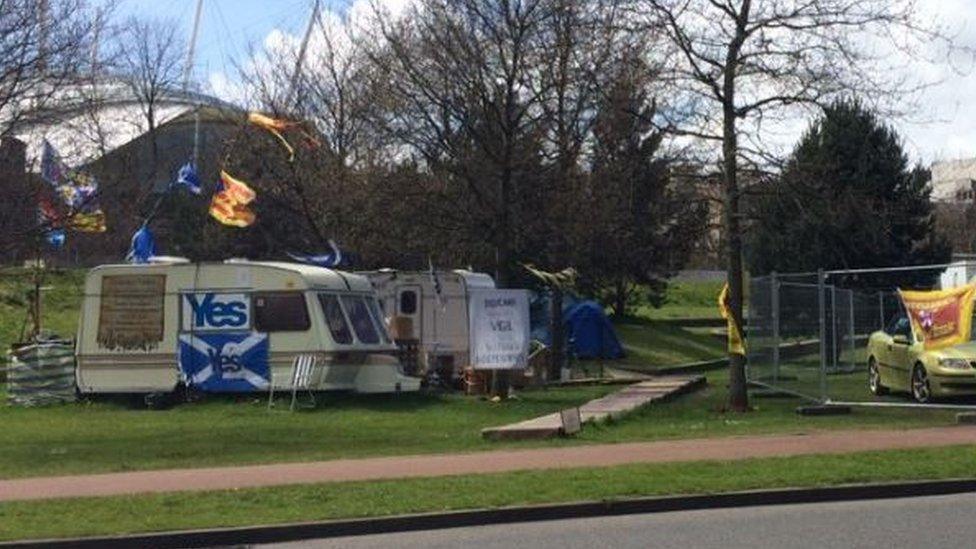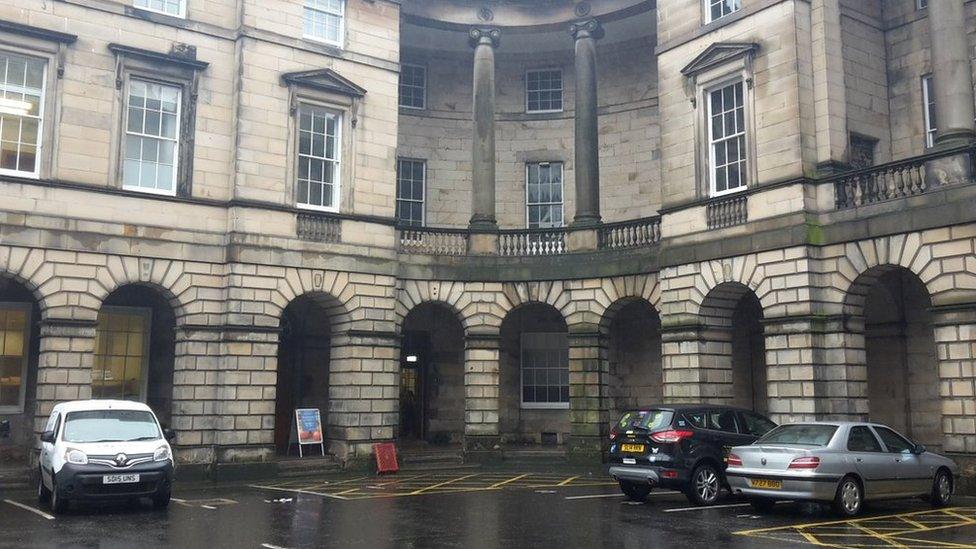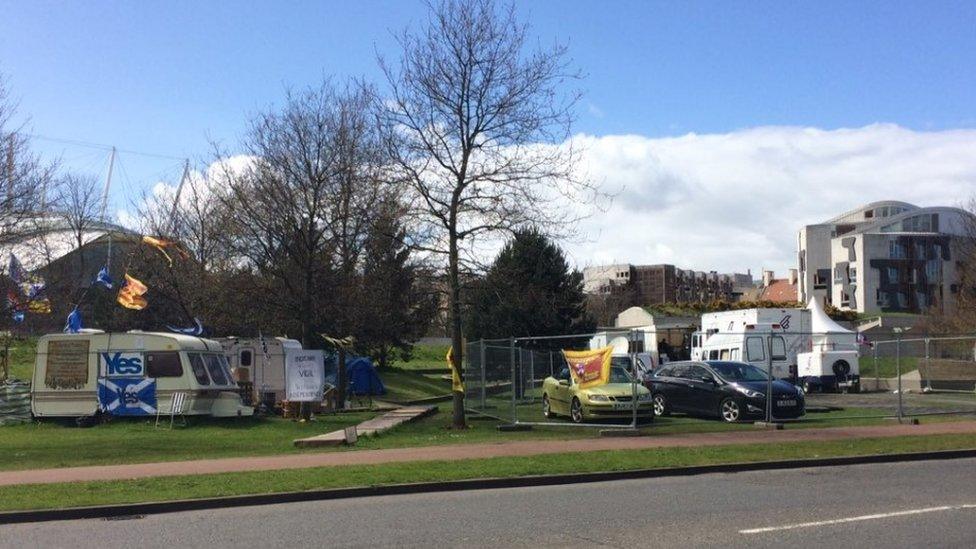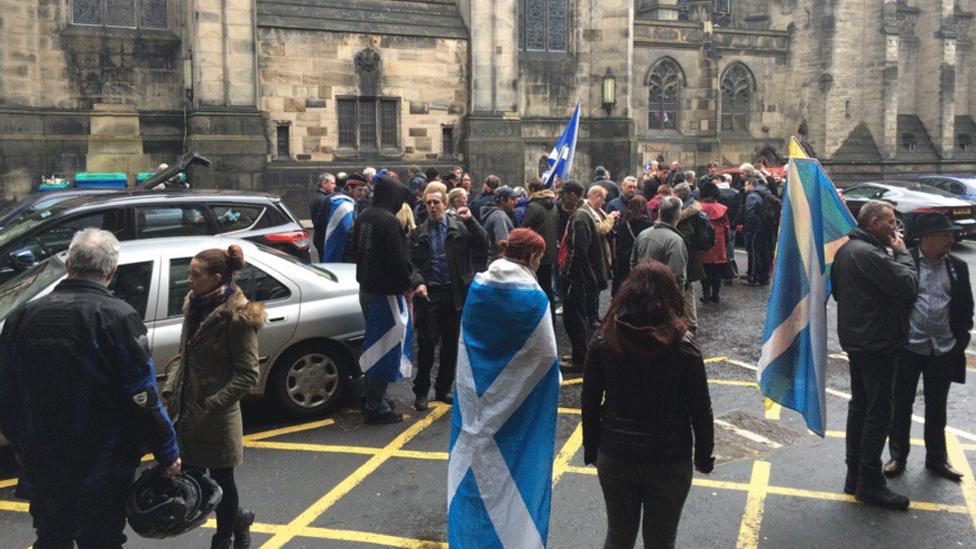Further delay in Holyrood independence camp eviction case
- Published

The independence camp was set up at Holyrood in November 2015
The Scottish Parliament's bid to have a group of independence campaigners ousted from Holyrood has been hit by a further legal delay.
The IndyCamp group have been camping at Holyrood for more than six months.
The parliament took the campers to court to have them removed, but the case before Lord Turnbull has been delayed while the group find a lawyer.
He warned them that the latest hearing had been a "complete and utter waste of time", fixing a new hearing on 14 June.
The parliament wants to remove the group, which refers to itself in court as the Sovereign and Indigenous Peoples of Scotland, as they are camping without permission and taking up land others could be using.
There are also concerns that the campers, who want to stay in place until Scotland is independent, could endanger the political neutrality of the parliamentary estate.
The campers maintain they have a right to maintain a peaceful vigil outside the parliament, although their other arguments - which included references to the Declaration of Arbroath and the Act of Union - were rejected by Lord Turnbull following an earlier hearing.

The case is being heard at the Court of Session
Lord Turnbull wanted to fix a date for a hearing on the matter of proportionality - whether evicting the group would be a proper response, with reference to their human rights.
What was meant to be a simple procedural hearing to agree that date stretched out over three hours, with confusion over what legal paperwork the campers had lodged and who was to speak for them.
Lord Turnbull said the morning had been "completely and utterly wasted" by the campers failing to learn the rules and follow procedure, saying this prevented the court from being used by other litigants.
Eventually, a total of nine people gave their full names and addresses as respondents for the remaining hearings.
They then asked for a four-week adjournment to instruct a human rights solicitor - although when asked for the name of the solicitor, they were unable to provide it.
The judge ultimately ordered a two-week continuation, but warned that he wanted to hear "chapter and verse" of the campers' efforts to obtain legal representation at the next hearing.
'Beneficial proceedings'
A Scottish Parliament spokesman said the hearing was worthwhile, given there were now officially just nine respondents rather than the 238 people who had put their names forward in the original proceedings.
All those people all listed their address as the Holyrood camp, something Lord Turnbull described as "cynical and unacceptable".
One camper, Richard McFarlane, said members were "very, very frightened" about giving out their residential addresses, saying they feared being evicted from their homes or being targeted for reprisals.
The spokesman said: "Today's proceedings were beneficial in establishing only nine individuals are now entitled to be party to the proceedings.
"We look forward to the court fixing an early date to bring resolution to this matter."
- Published5 May 2016

- Published24 March 2016

- Published9 March 2016
